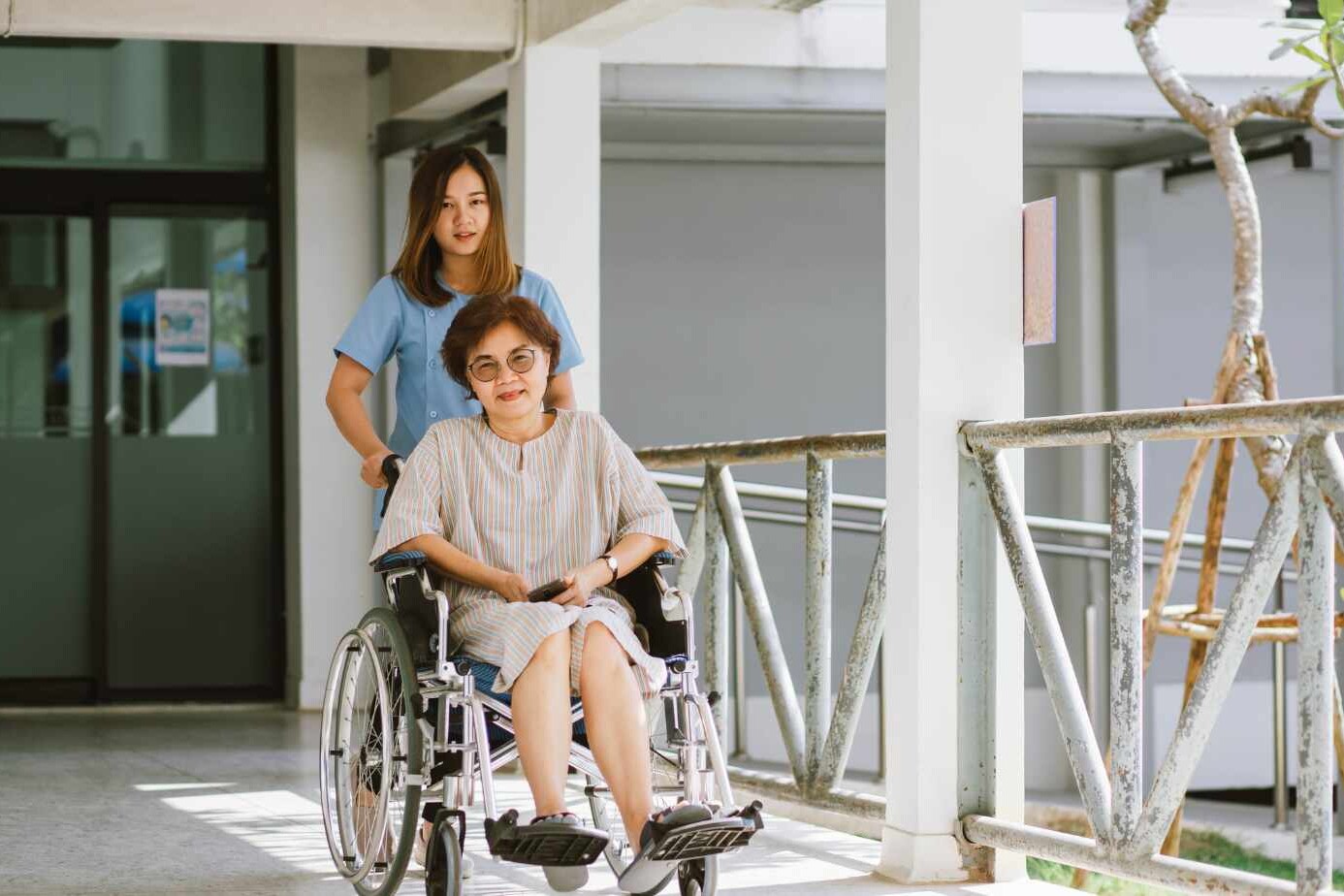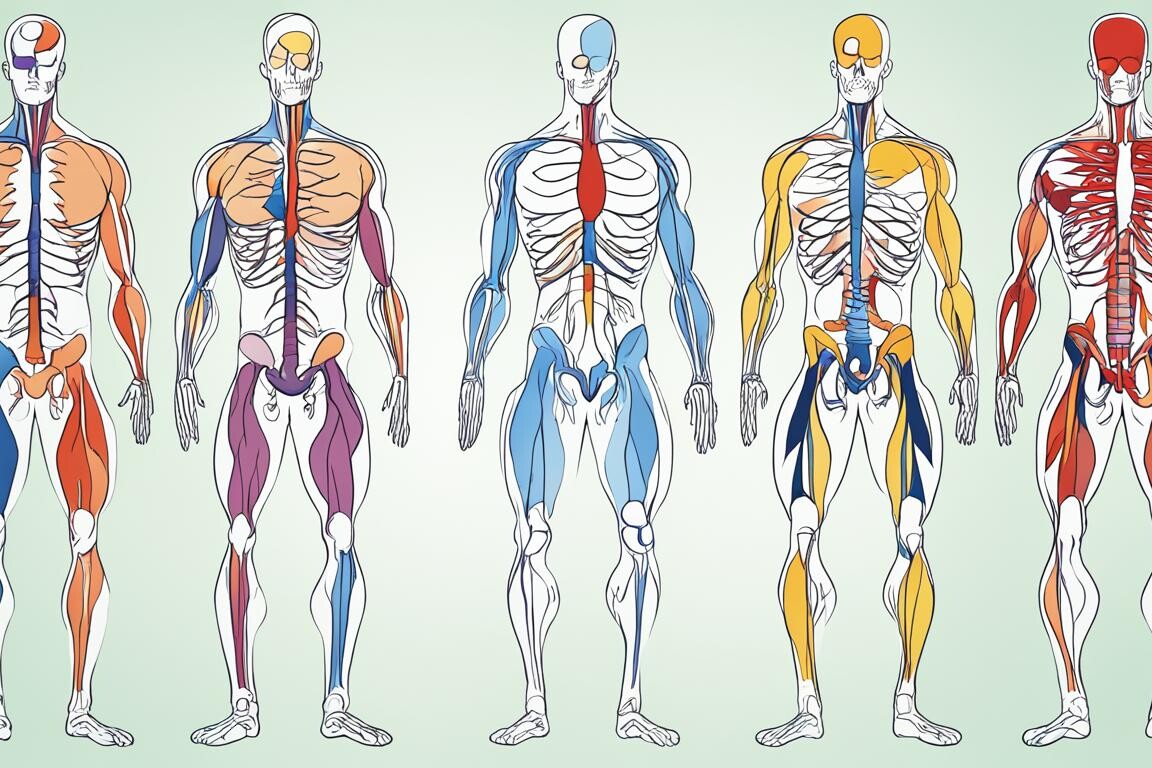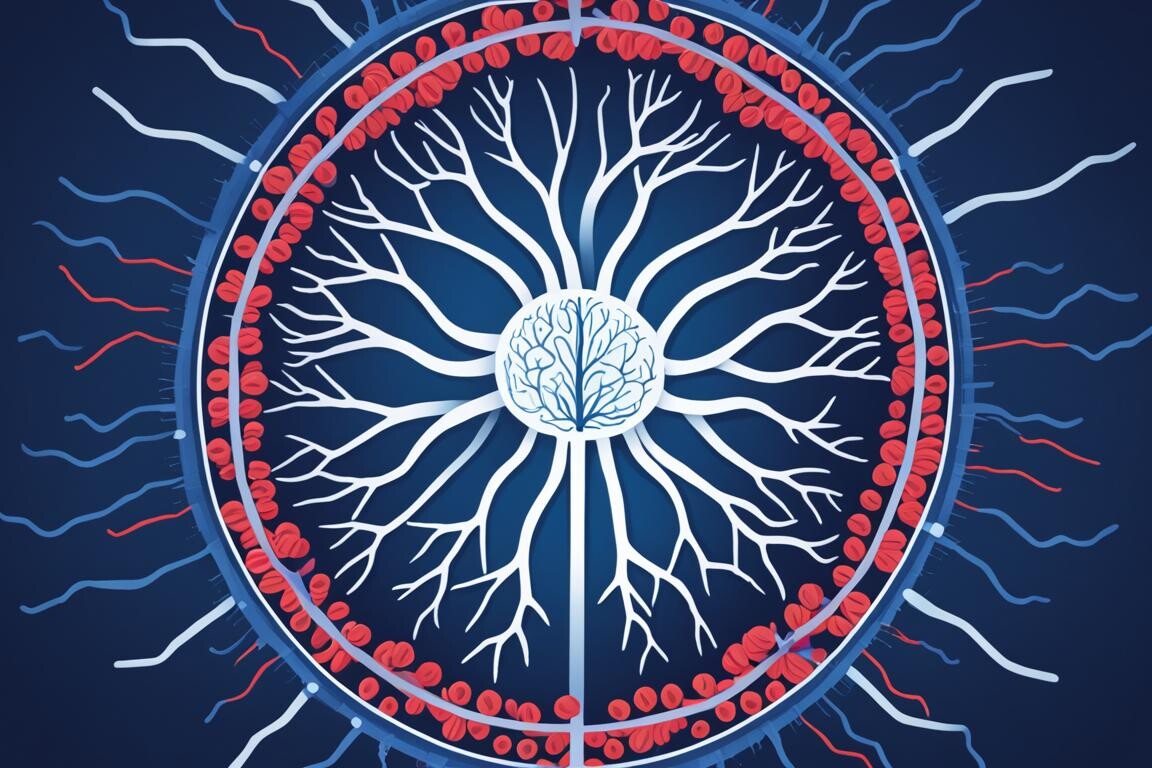Guillain Barre Syndrome (GBS) is rare. It makes your immune system attack your nerves. This leads to weakness, numbness, and tingling in your arms and legs. At first, you might feel a pins and needles sensation in your fingers, toes, ankles, or wrists. Then, you could have muscle weakness starting in your lower body and moving up. Later, this weakness can become paralysis.
It’s very important to get medical help quickly. GBS can get worse fast and you might need emergency care in a hospital. Knowing the early signs of GBS is crucial for getting the right treatment. Being aware of the early signs of Guillain Barre Syndrome can make a big difference. It can help you spot this rare but serious condition early. This way, you can get the care that is best for you.
Table of Contents
ToggleWhat is Guillain Barre Syndrome ?
Overview of Guillain BarreSyndrome
Guillain Barre Syndrome is quite rare but serious. It happens when the body’s defense system attacks its own nerves. These are the ones outside the brain and spine. This attack hurts the cover of the nerves, making it hard for them to work right. This leads to weakness, numbness, and strange feelings in the arms and legs.
Causes of Guillain Barre Syndrome
We don’t know exactly why some folks get this syndrome. But it usually starts after a sickness, like a bad cold or stomach bug. Some usual suspects are Campylobacter germs, flu, and Zika. When these hit, the body’s defense system might harm the nerve covers, slowing down signals and causing muscle problems.
Risk Factors for Developing Guillain Barre Syndrome
Some things make getting Guillain-Barré more likely. These include being older, having surgery lately, or some diseases like Hodgkin’s. Also, getting certain infections can heighten your risk. This includes not just COVID, but Zika, and some other viruses known to cause the syndrome.
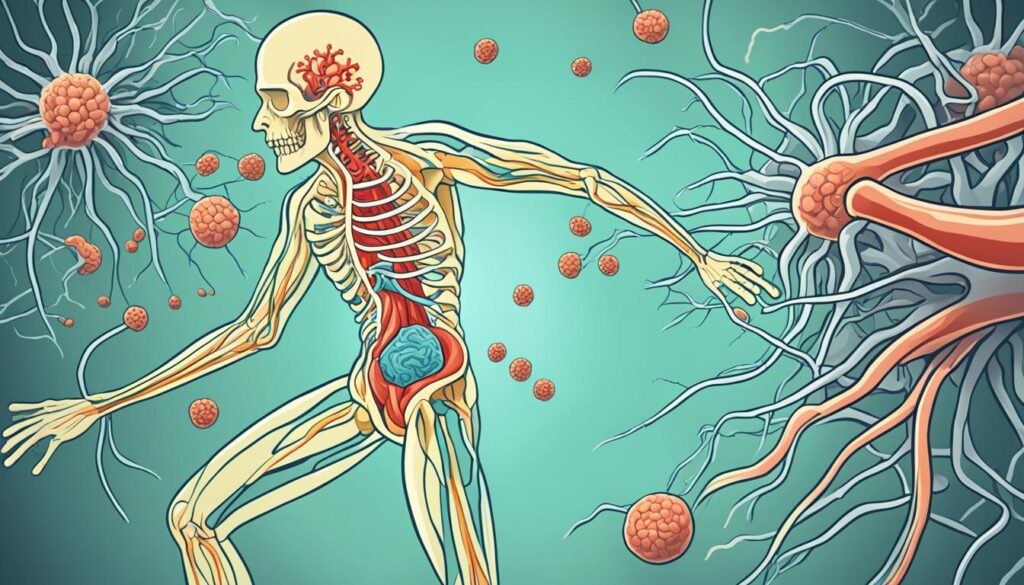
Guillain Barre Syndrome Symptoms
Early Signs and Symptoms
Guillain Barre Syndrome (GBS) starts with a weird feeling, like pins and needles, in your hands or feet. Then, it brings a kind of weakness from the bottom of your body. This can make it hard to walk, talk, eat, or move your arms and legs.
Progression of Symptoms
As time goes on, that weak feeling can turn into not being able to move at all. This can be very tough, because it affects everything you do every day. Most people get the worst part of GBS within two weeks. By the third week, about 90% are at their weakest.
Severe Symptoms Requiring Emergency Care
If you feel like it’s hard to breathe, your heart is beating really fast, or if you’re having trouble with saliva, you need help right away. Sometimes, people need a machine to help them breathe within a week of going to the hospital. GBS can get very bad quickly, so always get help fast if you see these signs.
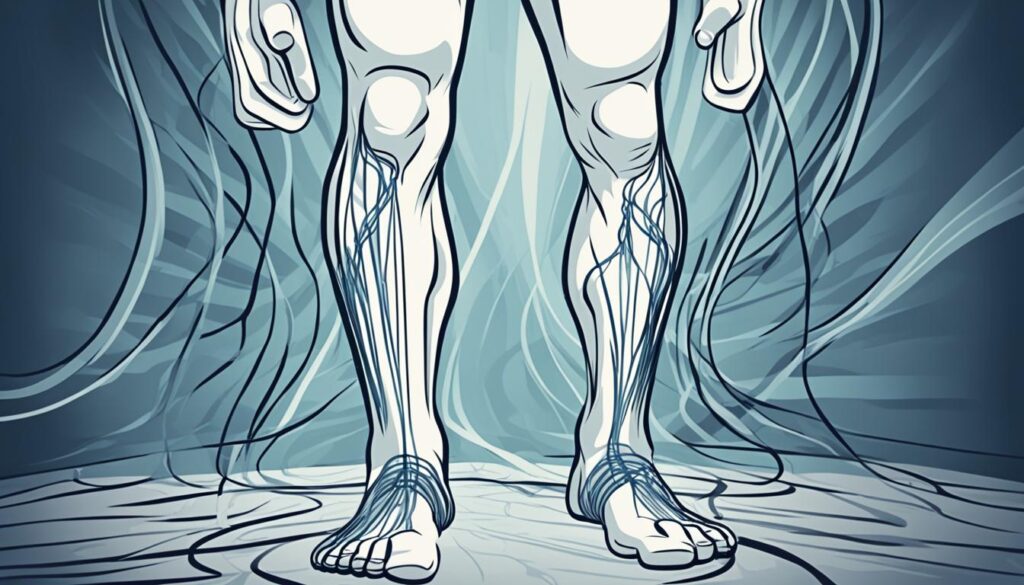
Diagnosing Guillain Barre Syndrome
Diagnosing Guillain Barre Syndrome is tricky. This is because its symptoms may look like other conditions. However, doctors have specific tests to confirm if someone has it.
Diagnostic Tests and Procedures
Healthcare providers do several tests to diagnose Guillain-Barré. These may include:
- A spinal tap to check protein levels in fluid around the spine
- EMG and NCV tests to look at nerve and muscle activity
- They also look at your medical history and do a physical exam to understand your symptoms better
With these tools, doctors can figure out if someone has Guillain-Barré. Finding out fast is important. This is because the illness can get worse quickly, needing quick medical care.
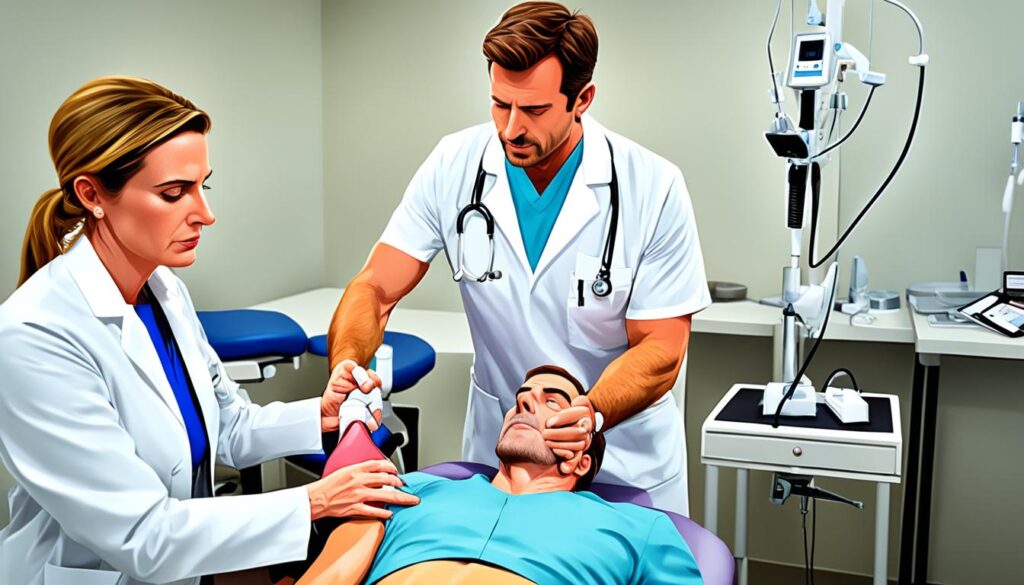
Treating Guillain Barre Syndrome
Guillain Barre Syndrome doesn’t have a cure yet, but treatments can help with symptoms and recovery. Immunotherapy treatments like plasmapheresis and IVIG aim to stop the immune system from hurting the nerves. They also work to lower inflammation.
Immunotherapy Treatments
Plasmapheresis takes out the patient’s blood, removes the plasma, and returns the blood’s other parts. This helps by getting rid of the bad antibodies attacking nerves.
IVIG gives patients healthy antibodies through a vein to fight the harmful ones. This also helps to lessen inflammation.
Supportive Care and Rehabilitation
It is very important for patients to get supportive care. This includes help with breathing using a machine if needed. It also looks at keeping blood pressure and heart rhythm stable.
The care also involves physical therapy and rehab. These are key for helping patients get back their strength, flexibility, and independence after Guillain Barre Syndrome.
Complications of Guillain BarreSyndrome
Guillain Barre Syndrome can cause serious problems. If it’s severe or gets worse quickly, it can lead to big issues with breathing. This is because the muscle weakness can affect how your lungs work, sometimes needing help from a machine to breathe.
Other problems from this syndrome include not feeling or moving parts of your body right, heart and blood pressure troubles, bad nerve pain, problems with going to the bathroom, and the risk of getting blood clots. In rare cases, it can cause death. This happens because of severe breathing issues and heart problems from the syndrome. So, it’s very important to watch out for and treat these complications to help someone get better and prevent long-term effects.
Dealing with Guillain Barre Syndrome can have serious risks, but getting quick help and right treatment can help most people recover fully. Knowing about the possible problems from this syndrome is key. It helps both people with the syndrome and their doctors find the best ways to treat it and reduce long-term issues.
| Potential Complications of Guillain Barre Syndrome | Incidence |
|---|---|
| Respiratory failure requiring mechanical ventilation | Up to 22% of individuals within the first week of hospitalization |
| Severe nerve pain | Experienced by one-third of people with Guillain Barre Syndrome |
| Muscle weakness or paralysis relapse | A small percentage of individuals may suffer a relapse, even years later |
| Increased risk with aging | Individuals over 50 years old are at the greatest risk of developing Guillain Barre Syndrome |
| Other complications | Joint contractures, blood clots, infections, low blood pressure, permanent paralysis, pneumonia, ulcers, and aspiration |
Conclusion
Guillain Barre Syndrome is a rare but serious nerve disease. It needs quick medical help. Early symptoms may include feeling a tingling or getting weak in the arms or legs. Knowing these signs can help you get better faster.
This syndrome is often caused by an infection or your immune system acting up. Treatments include medicine and therapy to handle the symptoms. It’s important to learn about the disease and how to spot it early.
Even though Guillain-Barré is rare, knowing its signs is crucial. It can lead to big problems like trouble breathing. Yet, with fast diagnosis and care, many people get better. So, learning about this nerve disease is key to taking care of yourself.
FAQ
What is Guillain Barre Syndrome ?
Guillain Barre Syndrome (GBS) is rare. It happens when the immune system attacks the nerves. This causes weakness, numbness, and tingling in the extremities.
What are the early signs and symptoms of Guillain Barre Syndrome ?
Early signs include feeling like there are pins and needles. You might feel this in your fingers, toes, ankles, or wrists. Also, there is muscle weakness starting in the lower body, then moving up.
What causes Guillain Barre Syndrome ?
It’s often caused by an infection. The immune system reacts to this infection in a way that harms the nerves. But exactly why this happens is not understood yet.
What are the risk factors for developing Guillain Barre Syndrome ?
You might be at more risk if you’re older, had recent surgery, or have certain medical issues. For example, Hodgkin’s lymphoma can increase your risk.
How is Guillain Barre Syndrome diagnosed?
Doctors use tests like a spinal tap, electromyography (EMG), and nerve conduction velocity (NCV) studies. These help confirm if you have Guillain Barre Syndrome.
What are the treatments for Guillain Barre Syndrome ?
Guillain Barre Syndrome can be treated. Methods include plasmapheresis and receiving immunoglobulin through an IV. Supportive care and rehabilitation also play a big part in treatment.
What are the possible complications of Guillain Barre Syndrome?
This syndrome can lead to many problems. Some of these are difficulty breathing, ongoing numbness or weakness, issues with the heart and blood pressure, severe nerve pain, and trouble with the bladder and bowel. It can also cause blood clots.
Source Links
- https://www.mayoclinic.org/diseases-conditions/guillain-barre-syndrome/symptoms-causes/syc-20362793
- https://www.hopkinsmedicine.org/health/conditions-and-diseases/guillainbarr-syndrome
- https://www.ninds.nih.gov/health-information/disorders/guillain-barre-syndrome
- https://www.who.int/news-room/fact-sheets/detail/guillain-barré-syndrome
- https://www.mayoclinic.org/diseases-conditions/guillain-barre-syndrome/diagnosis-treatment/drc-20363006
- https://www.mountsinai.org/health-library/diseases-conditions/guillain-barr-syndrome
- https://www.ncbi.nlm.nih.gov/books/NBK532254/
- https://rarediseases.org/rare-diseases/guillain-barre-syndrome/
About The Author

This article is medically reviewed by Dr. Chandril Chugh, Board-Certified Neurologist, providing expert insights and reliable health information.
Dr. Chandril Chugh is a U.S.-trained neurologist with over a decade of experience. Known for his compassionate care, he specializes in treating neurological conditions such as migraines, epilepsy, and Parkinson’s disease. Dr. Chugh is highly regarded for his patient-centered approach and dedication to providing personalized care.
→ Book a consultation to discover which remedies suit your needs best.

